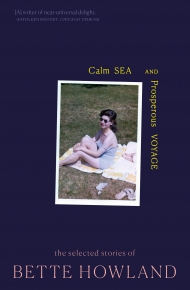On Anne Carson’s “Ghost Q & A”
• Jillian Weise • April 1, 2014
May we talk about poetry and magic? Or is it passé? I have a feeling it is passé. But still I hear poets say, “I don’t choose the form. The poem chooses the form,” or “The poem speaks to me.” They say these things flatly as if there is nothing strange about a poem opening its mouth to whisper in the poet’s ear. One imagines the poem saying, “Hello! I am an aubade,” or “I need to use the bathroom.” Before I poke too much fun at the poets, or at myself for citing magic, I remember that poems have always come from above, from the gods and, more recently, from the irrational element (Stevens), the over-mind (H.D.), energy (Olson), neo-hoodoo (Reed), and aliens (Spicer). It is as if poets agree: “We can’t explain poetry. And we don’t want to. In the best poems, there is always something inexplicable.”
I love Anne Carson’s “Ghost Q & A” for some inexplicable quality. As I was saying to my friend Henry, executor of my ghosts, “What to do? I love this poem so much and I can’t explain it.” On the surface, it joins the imaginary interviews of Plato and ee cummings. It is an interrogation between a ghost and a person. The sudden appearance of a man in the poem—“he does the zeroes”—makes me think the person could be a ghost inductee. The poem engages ontology (“how do you know you’re a ghost”), astrophysics (“space and time are wrong”), and animism (“most of the objects here are ghosts”). The poem is far out yet feels intimate. I feel for the ghost. She has a condition, “the sliding,” which affects her nerves. I feel for the person/almost-ghost who wants to understand, but never quite can. These two talk to each other, change the subject, talk over each other, try to find common ground with Paris and Pynchon, and finally remain unknown to each other.
Anne Carson's poem "Ghost Q & A" appeared in APS 13.
Back to Top
Author
Jillian Weise’s books include The Book of Goodbyes (BOA Editions), for which she received the James Laughlin Award from the Academy of American Poets; and the novel The Colony (Soft Skull Press). She teaches at Clemson University.
Categories
Archive
About
A Public Space is an independent, non-profit publisher of the award-winning literary and arts magazine; and A Public Space Books. Since 2006, under the direction of founding editor Brigid Hughes the mission of A Public Space has been to seek out and support overlooked and unclassifiable work.
Featured Title

"A ferocious sense of engagement... and a glowing heart." —Wall Street Journal
Current Issue

Subscribe
A one-year subscription to the magazine includes three print issues of the magazine; access to digital editions and the online archive; and membership in a vibrant community of readers and writers.
Newsletter
Get the latest updates from A Public Space.
